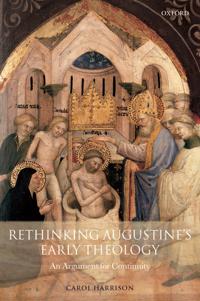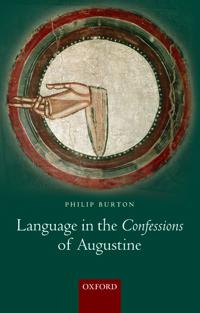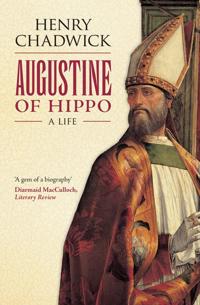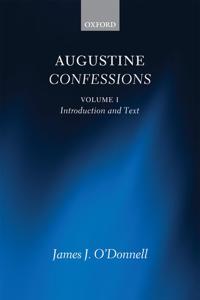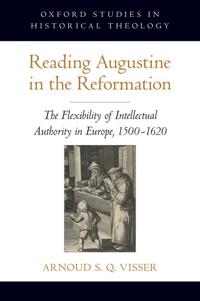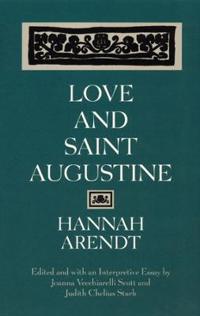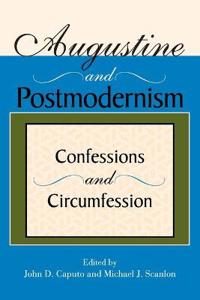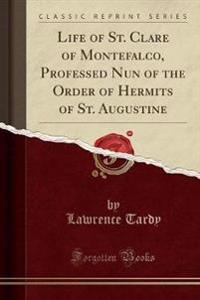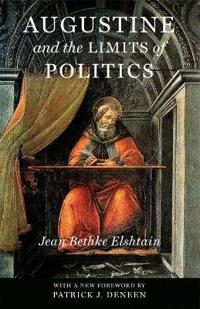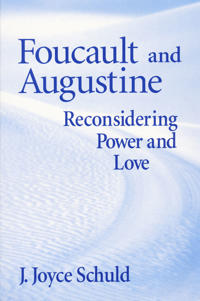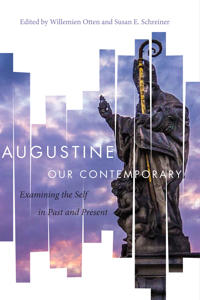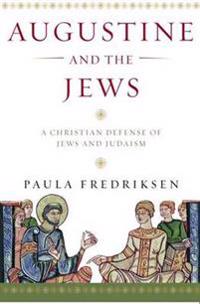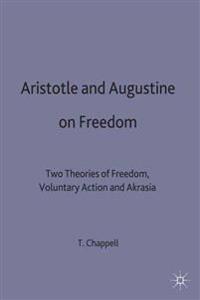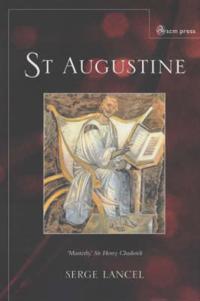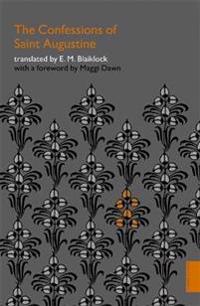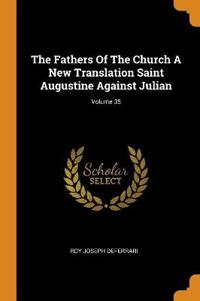Rethinking Augustine's Early Theology
ISBN: 9780199543649 - UTGIVEN: 2008-07Carol Harrison counters the assumption that Augustine of Hippo's (354-430) theology underwent a revolutionary transformation around the time he was consecrated Bishop in 396. Instead, she argues that there is a fundamental continuity in his thought and practice from the moment of his conversion in 3[...]
Language in the Confessions of Augustine
ISBN: 9780199554454 - UTGIVEN: 2009-04Philip Burton explores Augustine's treatment of language in his Confessions - a major work of Western philosophy and literature, with continuing intellectual importance. One of Augustine's key concerns is the story of his own encounters with language: from his acquisition of language as a child, th[...]
Augustine of Hippo (Häftad)
avHenry Chadwick
ISBN: 9780199588060 - UTGIVEN: 201008The life and works of Augustine of Hippo (354-430) have shaped the development of the Christian Church, sparking controversy and influencing the ideas of theologians through subsequent centuries. His words are still frequently quoted in devotions throughout the global Church today. His key themes re[...]
Augustine Confessions
ISBN: 9780199660728 - UTGIVEN: 2013-01The Confessions of Augustine have long both demanded and eluded the sustained and serious attention to detail that a scholarly commentary can provide. The present work, which is in three volumes, seeks to supplement that lack. A revised Latin text of the Confessions in Volume I forms the basis for a[...]
Augustine Confessions
ISBN: 9780199660735 - UTGIVEN: 2013-01The Confessions of Augustine have long both demanded and eluded the sustained and serious attention to detail that a scholarly commentary can provide. The present work, which is in three volumes, seeks to supplement that lack. A revised Latin text of the Confessions in Volume I forms the basis for a[...]
Reading Augustine in the Reformation
ISBN: 9780199765935 - UTGIVEN: 2011-05Augustine of Hippo (354-430 AD) was regarded by sixteenth century Europe as one of the most contested religious and philosophical authorities. He was cast as a characteristically Lutheran, Catholic, or Calvinist thinker, and even as the ideal Erasmian pastor. These wildly contrasting receptions rais[...]
Augustine (häftad)
ISBN: 9780225666816 - UTGIVEN: 1995-08A comprehensive introduction to one of the most influential Christian theologians of all time, this book distills the teachings of Augustine (354-430) from his ninety-five works, more than 1,000 sermons, and some 270 letters into a concise overview of his major topics. Mary T. Clark shows how August[...]
Love and Saint Augustine (Pocket)
avHannah Arendt, Joanna Vecchiarelli Scott, Judith Chelius Stark
ISBN: 9780226025971 - UTGIVEN: 199805Hannah Arendt began her scholarly career with an exploration of Saint Augustine's concept of caritas, or neighborly love, written under the direction of Karl Jaspers and the influence of Martin Heidegger. After her German academic life came to a halt in 1933, Arendt carried her dissertation into exi[...]
Political and Social Ideas of Saint Augustine, The (Pocket)
avH.A. Deane
ISBN: 9780231085694 - UTGIVEN: 1966-02-01Reading Shakespeare's Will: The Theology of Figure from Augustine to the Sonnets (Inbunden)
avLisa Freinkel
ISBN: 9780231123242 - UTGIVEN: 2002-01-09Reading Shakespeare's Will: The Theology of Figure from Augustine to the Sonnets (Pocket)
avLisa Freinkel
ISBN: 9780231123259 - UTGIVEN: 2002-01-09Augustine (häftad)
ISBN: 9780241950753 - UTGIVEN: 2016-11A major new interpretation of how one of the great figures of Christian history came to write the greatest of all autobiographies Augustine is the person from the ancient world about whom we know most. He is the author of an intimate masterpiece, the Confessions, which continues to delight its many[...]
Augustine and Postmodernism (Häftad)
avMichael J. Scanlon
ISBN: 9780253217318 - UTGIVEN: 200502At the heart of the current surge of interest in religion among contemporary Continental philosophers stands Augustine's Confessions. With Derrida's Circumfession constantly in the background, this volume takes up the provocative readings of Augustine by Heidegger, Lyotard, Arendt, and Ricoeur. Derr[...]
Life of St. Clare of Montefalco, Professed Nun of the Order of Hermits of St. Augustine (Classic Reprint)
ISBN: 9780259437550 - UTGIVEN: 2017-05Augustine and the Limits of Politics (Häftad)
avJean Bethke Elshtain
ISBN: 9780268020019 - UTGIVEN: 1997-12"Augustine has proven himself a valuable companion on Elshtain's journey, and many readers will find her a fascinating fellow traveler on journeys of their own". -- The New Oxford Review"Elshtain invites us to dispel our preconceptions and see Augustine for the magnificent and most benign force he i[...]
Foucault and Augustine
ISBN: 9780268028695 - UTGIVEN: 2003-12Using Augustine as a conversation partner, this text explores the value of Michel Foucault's controversial writings for theologians, ethicists, philosophers and cultural theorists. It demonstrates the possibilities and difficulties of applying Foucault's social criticisms within Christian contexts.[...]
Augustine Our Contemporary
ISBN: 9780268103453 - UTGIVEN: 2018-05In the massive literature on the idea of the self, the Augustinian influence has often played a central role. The volume Augustine Our Contemporary, starting from the compelling first essay by David W. Tracy, addresses this influence from the Middle Ages to modernity and from a rich variety of persp[...]
Financial Accounting (Pocket)
avAugustine Benedict, Barry Elliott
ISBN: 9780273737650 - UTGIVEN: 2010-12-09Rev. ed. of: Financial accounting: an introduction. 2008.
Augustine and the Jews: A Christian Defense of Jews and Judaism (Häftad)
avPaula Fredriksen
ISBN: 9780300166286 - UTGIVEN: 201010Now in paperback with a new postscript, this updated edition of Paula Fredriksen's critically acclaimed "Augustine and the Jews" traces the social and intellectual forces that led to the development of Christian anti-Judaism and shows how and why Augustine challenged this tradition.Drawing us into t[...]
Aristotle and Augustine on Freedom
ISBN: 9780333625378 - UTGIVEN: 1995-03Aristotle and Augustine both hold that our beliefs in freedom and voluntary action are interdependent, and that voluntary actions can only be done for the sake of good. Hence Aristotle holds that no-one acts voluntarily in pursuit of evil; such actions would be inexplicable. Augustine, agreeing that[...]
St Augustine
ISBN: 9780334028666 - UTGIVEN: 2002-04Addressed to an educated general readership, Lancel's authoritative study places St Augustine against the colourful background of the Mediterranean world of antiquity, exploring the major influences, events and competing philosophies which were formative for his thought and theology. Attention is gi[...]
The Confessions of Saint Augustine (Pocket)
avE. M. (TRN) Blaiklock, Maggi (FRW) Dawn, E. M. (TRN) Blaiklock
ISBN: 9780340980125 - UTGIVEN: 2010-04You made us for yourself, and our heart is restless until it finds rest in you. St Augustine was a towering figure in his own time, and remains the greatest of the fathers of the church. His CONFESSIONS are an autobiographical work, recalling crucial events in his life: his mid-4th-century boyhood i[...]
The Fathers of the Church a New Translation Saint Augustine Against Julian; Volume 35 (häftad)
ISBN: 9780343204877 - UTGIVEN: 2018-10

